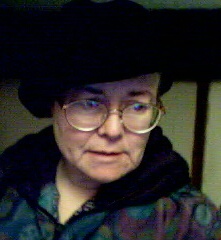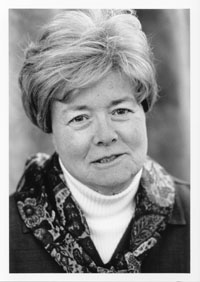
Home
Reflections on the Logic of the Good
Liberty, God's Gift
to Humanity
Two Concepts
of Covenant
(A paper posted for comment)
Plays
A River Went
Out of Eden
Inungilak
Professional Biography
Email me
Chana Cox's writings express her personal views and do not represent any
official position or policy of Lewis & Clark College.
|
Chana Cox
View the Liberty, God's Gift to Humanity Slideshow.
 Chana Cox received her Ph.D. from Columbia University. She, her husband, and their children lived
in the Salmon River Idaho wilderness with her husband's uncle Sylvan Hart, a.k.a. Buckskin Bill
Last of the Mountain Men. (See Cox's A River Went out of Eden, Lexikos Press).
Chana Cox received her Ph.D. from Columbia University. She, her husband, and their children lived
in the Salmon River Idaho wilderness with her husband's uncle Sylvan Hart, a.k.a. Buckskin Bill
Last of the Mountain Men. (See Cox's A River Went out of Eden, Lexikos Press).
She returned to "civilization" after seven years and was employed as a Vice President of Planning
for a public company operating in the Eastern Canadian Arctic. The Cox family never quite readapted
to the background noises of city life. She and her husband now live on a hill top overlooking the
Columbia River Valley. When the sun shines which it rarely does in Oregon - she lives and works in
clear sight of Mount Hood, Mount St. Helens, Mount Adams, and Mount Rainier. She counts this as one
of the many ways in which her life has been blessed.
By academic training she is a scholar of Leibniz and of 17th century philosophy of science; but more
recently she taught courses in four departments at Lewis and Clark College. She has taught courses in
political science, intellectual history, classics, and economics.
In 2006, her book on the history of (classical) liberalism, Liberty: God's Gift to Humanity was published
by Lexington Books, a division of Rowman and Littlefield. In 2007, Lexington published her Reflections on
the Logic of the Good, a critique of Plato's Republic. One of her plays Pharaoh, King of Egypt was produced
in Portland as an interfaith effort by Augustana Lutheran Church and Lewis and Clark College. There have
been staged readings of other plays.
In conception and execution, all of her work is intrinsically and necessarily interdisciplinary. Her
life has certainly been interdisciplinary.
|
|
|

